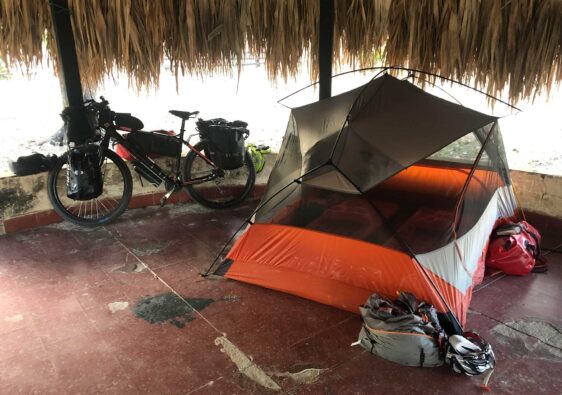In the end we only spend two nights in Medellin before once again our friend Luis comes to our rescue, picking us up from our hotel with our bikes and all our bags, and escaping the busy city to stay a few days with his sister-in-law in their Finca in El Retiro, a beautiful region about 30km south east of Medellin.

After two full days wandering around the city of Medellin, we were exhausted. I always find cities interesting and vibrant but there’s so much to do and they’re so busy it certainly wasn’t the relaxing time off I’d hoped for. We were staying in Downtown Medellin which was heavily populated and it was also still incredibly hot. I was particularly disturbed by the sheer amount of homeless people wandering the streets. I’ve been in cities before where there’s been much homelessness, Manchester in particular, stays in my mind, but this was on a different level!
Our first morning in medellin I awoke early at 5.45am which we’d been used to doing now because of the morning sun in the tent. We went for a wander in the city to find some good coffee, we ended up in what we later discovered to be one of the most dangerous areas of the city. At the time I definitely did feel an instinct to get out fast but more than anything I felt a sadness that such a place existed. In my naive small town upbringing I hadn’t been exposed to much poverty to this extent.
On our second morning we were sat in a local cafe having breakfast. Once again my scrambled eggs arrived with some added sausage, even though I’d said ‘sin carne, sin pollo, sin animales’. We took the meat off and placed it on a side plate. A little while later a homeless man was at the door near our table, asking for food. Chris handed him the plate of sausage, he politely asked for our empty plastic coffee cup and scooped the sausage into it. I couldn’t look at him, not because I was scared of him, but for fear I would break down in tears at the sadness and injustice of his situation. Why was I so fortunate and yet this man along with so many others were lucky if they were able to feed off someone else’s left over breakfast.
I’m sure had we explored the city more we would have seen a different side and may have moved on with some better memories but we decided to move on. El Retiro and the surrounding area was a complete contrast, and this was where the wealthy Colombians were escaping to, post Covid. Luis sister in law, Marcella, was beautiful, inside and out. She welcomed us into her home, and once again we were completely trusted. This was the chicken farm business, the second one and this time we were staying right next to it, so we did get the grand tour. The first shed we went into was full of young chickens and they were roaming around, which I thought wasn’t too bad really. However the second and third sheds we went into were caged hens, maybe 20 or so in each cage, and thousands of cages, and it didn’t feel right, it certainly put me off eating eggs, which is difficult as I’m already limited to what I can eat in Colombia! It was interesting to see how the process worked though, and what I did notice was how happy the staff were in their roles. They chatted away to us and it didn’t seem too much like a factory line!

That night we met Luis and he took us to El Retiro, where he grew up. It’s a colourful town 2100m high and so it was noticeably cooler at night, for the first time since I’d been in Colombia I actually put a fleece top on! He took us to his mother-in-laws home where we met his son Juan David, his wife and other members of the family. Sadly his mother-in-law had terminal cancer and had days to live. It felt very strange to be in their family home at what must have been such a difficult time, but once again we were welcomed, offered food and coffee. Being there bought up some painful memories for me, but I was humbled at how we were welcomed in as part of the family.

The next day Marcella and her Pappi (her Dad, whose name I didn’t quite catch but he seemed comfortable with us calling him Pappi!)drove us to El Pinol and Guatape. El Penol is a huge rock with 700 steps to climb to the top with great views over a huge lake that supplies electricity to over 30% of Colombia. Marcella speaks good English and we learn more about Colombia, how where she lives was once fairly rural countryside, but since Covid, many Colombians from the nearby city Medellin, have been buying up farm houses and land and building big houses. With this, shopping parks, restaurants and hotels have been built, turning what was once rural Antioqia into suburbia.

The next day, after four days off, we once again said our goodbyes and headed off on our bikes back towards Medellin and then south towards the Eje Cafatero, the famous Colombian coffee axis. It was good to be back on the bikes again, and we were ready for the next part of our adventure.


